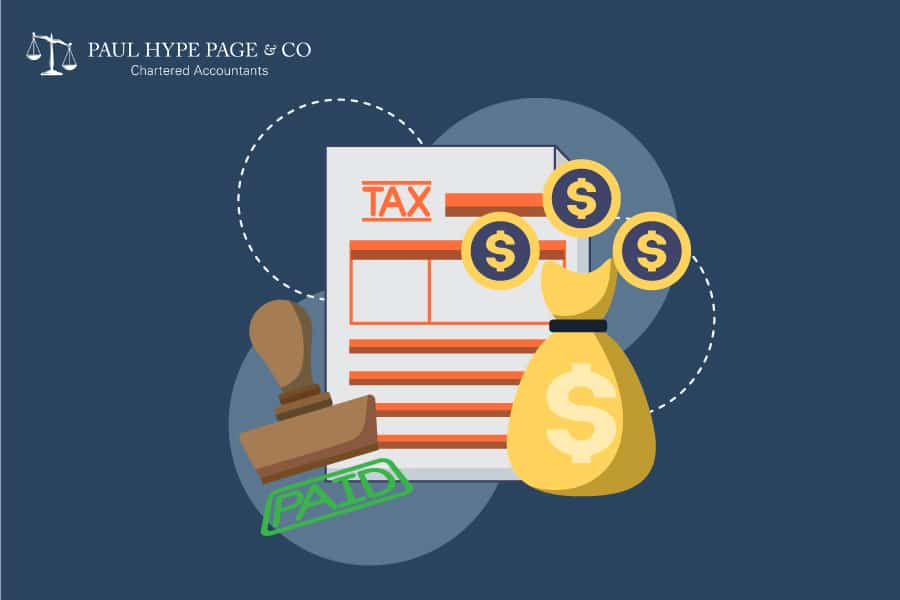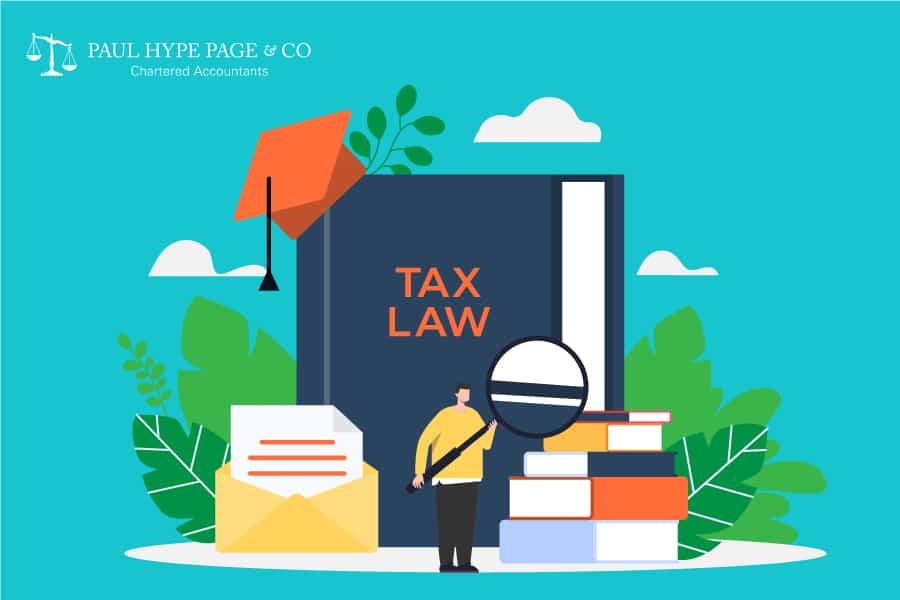Double taxation, a significant concern for businesses and individuals, is a particularly pertinent issue in Singapore’s context. As a global business hub, Singapore attracts numerous multinational companies and foreign investors. However, navigating the complexities of taxation, especially in an international setting, requires a comprehensive understanding of Singapore’s tax laws and regulations.
In this article, we delve into the specifics of double taxation in Singapore, exploring its implications, relief measures, and alternative strategies to mitigate its impact.
Double Taxation in the Global Context
According to Investopedia: “Double taxation is a tax principle referring to income taxes paid twice on the same source of income. It can occur when income is taxed at both the corporate level and personal level. Double taxation also occurs in international trade or investment when the same income is taxed in two different countries.”
There are two main types of double taxation:
1. Corporate Double Taxation
It is a situation in which corporate earnings are taxed twice at two different levels but include the same income. A corporate organization’s net income is taxed as corporate tax, and when the same income is distributed to shareholders as a dividend, it is again taxed by way of a dividend tax. Corporate double taxation is common not only in the United States but in several countries around the world.
2. International Double Taxation
International double taxation mainly concerns multinational entities that operate in jurisdictions other than their home country, but it can also affect foreign income earned by individuals in foreign countries. There are instances where foreign income is taxed in the country where the income is derived, as well as the country where an investor resides.
Many countries such as the USA, China and Australia still adopt a worldwide Taxation system. Oftentimes referred to as Double Liability, we will now look at Singapore’s context and how Singapore copes with this issue of Double Taxation.
Double Taxation in the Singapore context
There is NO DOUBLE TAX in Singapore.
Unlike other countries globally, Singapore adopts a very different corporate tax system. Singapore’s tax system is based on double taxation and obstructs international trade and business by penalising corporations engaging in inter-border trade.
To achieve this, Singapore has taken extensive measures to enter into Double Tax Agreements (DTAs) with a substantial number of countries. There are also unilateral tax credits that apply to all foreign-based income that does not have a DTA with Singapore. We will also look into claiming benefits under the Avoidance of Double Tax Agreements using a Certificate of Residence.
Double Tax Agreements (DTAs)
DTAs should eliminate the resulting double taxation by either having the income: Taxed in only one of the two relevant countries, e.g. business profits, or Subjected to a lower (preferential) tax rate in one of the two relevant countries as compared to the domestic tax rate.
Benefits of DTAs:
Businesses based in Singapore are protected from double taxation, unlike other jurisdictions as mentioned above.
- This enables businesses based in Singapore to compete with foreign businesses and expand globally as compared to other countries.
- It also gives foreign business owners the freedom to base their business in Singapore, receiving profits from the comfort of their own country without being double taxed.
Conditions to Claim for Tax Relief under Singapore DTAs:
- the claimant must be a tax resident in Singapore
- the income must be such that it is subject to tax in Singapore
- the income must be received or deemed to be received in Singapore, and
- the tax has been paid or is payable on the income in the foreign country.
Claiming benefits under the Avoidance of Double Tax Agreements (DTAs) using Certificate of Residence
The Inland Revenue Authority of Singapore (IRAS) has set up various tax schemes and incentives to reduce taxpayers’ tax burden. Among these is the Certificate Of Residence (COR).
A COR may be issued to any individual or company which is a Singapore tax resident. One of the benefits granted to any individual or company which has a COR is access to lower tax rates, acquisition of tax credits, or even tax exemption.
Several criteria must be fulfilled before the IRAS can give out a COR to a company. The most important of these is that the company must have its control and management policies maintained by its Singapore office. Thus, the company must prove policies, control, and strategic management of the company are exercised in Singapore.
It should also be mentioned that the location of the company’s incorporation does not necessarily have to be the same as the location of the company’s tax residence. Due to multiple cases of manipulation and fraud, the IRAS keeps a close eye on all companies that apply for a COR. The COR and evidence required to receive one are assessed by the IRAS before it hands out the certificate.
Some people may be unsure if they or their company are capable of obtaining a COR. In such cases, a visit to a consultation firm may be helpful. Such firms will give the potential applicant more information about the COR. Those who are or whose company is eligible may also seek the consultation firm’s help in making a tax assessment.
Tax Relief Without DTA
In any case, where there are no DTAs within a particular country, Singapore residents may avoid double taxation. This is because, in Singapore, multiple types of foreign-sourced incomes are exempted should they fulfil the criteria. The types of exempted foreign-sourced income include:
- Dividends
- Foreign branch profits
- Foreign service income
Here are the 2 criteria to avoid double taxation in Singapore:
- Income received from the foreign country must be a minimum of 15%
- Income received has been taxed in the foreign country
- This is called unilateral tax credit, and one of the methods of reducing your double taxation in Singapore.
Alternative Ways to Reduce Double Taxation
Aside from unilateral tax credits, there are other ways to reduce your double taxation.
- Tax credit (Double Tax Relief)
- Tax exemptions
- Reduced tax rates
- Reliefs by deductions
Our thoughts
For international business, it is not only important to find a jurisdiction with a reasonably low tax rate but also one that has many DTA to prevent suffering double taxation.
FAQs
Countries like the USA, Malaysia, India, Australia, China, Indonesia, and Japan have signed DTAs with Singapore. View the full list of the countries here.
The Tax Forms that companies must submit every year are:
- Estimate Chargeable Income (ECI)
- Corporate Income Tax Returns
Singapore tax is relatively low as compared to other countries because competitiveness is a decisive consideration undergirding its tax policy.
The corporate tax rate in Singapore is 17%.
A company, regardless of whether it is a local or a foreign company, will be taxed on its:
- income accruing in or derived from Singapore; or
- income received in Singapore from outside Singapore
You are required to make a declaration in your income tax returns by giving the nature and amount of the foreign-sourced income that was remitted to Singapore. You are also required to complete the Declaration Form for Foreign-Sourced Income Received in Singapore From 22 Jan 2009 to 21 Jan 2010 (60KB) for submission to IRAS. Although you have to state the use of the foreign income in the declaration form, the usage of such foreign income will not affect the claim for tax exemption.
An Avoidance of Double Taxation Agreement (DTA) is an agreement signed between Singapore and another country (a treaty country) which serves to relieve double taxation of income that is earned in one country by a resident of the other country.
It makes clear the taxing rights between Singapore and her treaty partner on the different types of income arising from cross-border economic activities between the two countries.
The DTA also provides for reduction or exemption of tax on certain types of income.
Only Singapore tax residents and tax residents of the treaty country can enjoy the benefits of a DTA. To find out who are our treaty partners, please refer to the List of Avoidance of Double Tax Agreements.
Income is assessed on a preceding year basis. This means that the basis period for any Year of Assessment (YA) generally refers to the financial year ending in the year preceding the YA.
There are various types of tax incentives available to companies and these are provided in the Singapore Income Tax Act (ITA) and Economic Expansion Incentives Act (EEIA). Some of the tax incentives available are listed in the table below.
| Governing legislation | Types of incentives | Where to apply |
|---|---|---|
| ITA/S13F | Approved International Shipping Enterprise | MPA www.mpa.gov.sg |
| ITA/S13H | Approved Venture Company | EDB www.edb.gov.sg |
| ITA/S14B | Further deduction of expenses relating to Approved Trade Fairs, Trade Exhibitions, Trade Missions or to maintain overseas Trade Office | IE Singapore www.enterprisesg.gov.sg |
| ITA/S14E | Further deduction of expenses on Research and Development Project | EDB www.edb.gov.sg |
| ITA/S14O | Tax deduction of special reserves for catastrophic risks of approved general insurers | MAS www.mas.gov.sg |
| ITA/S19C | Writing down allowance for cost sharing agreement | EDB www.edb.gov.sg |
| ITA/S43(9) | Concessionary rate of tax for income of life insurance companies apportioned to policyholders | – |
| ITA/S43C | Concessionary rate of tax for approved offshore general insurance companies | MAS www.mas.gov.sg |
| ITA/S43C | Concessionary rate of tax for approved offshore life insurance companies | MAS www.mas.gov.sg |
| ITA/S43C | Concessionary rate of tax for approved offshore composite insurance companies | MAS www.mas.gov.sg |
| ITA/S43C | Exemption of tax for approved marine hull and liability insurer (onshore and offshore business) | MAS www.mas.gov.sg |
| ITA/S43C | Exemption of tax for approved offshore captive insurance companies | MAS www.mas.gov.sg |
| ITA/S43C | Exemption of tax for approved insurer underwriting offshore qualifying specialised insurance risk | MAS www.mas.gov.sg |
| ITA/S43E | Concessionary rate of tax for Approved Operational Headquarters (OHQs) | EDB www.edb.gov.sg |
| ITA/S43G | Concessionary rate of tax for Approved Finance and Treasury Centre | EDB www.edb.gov.sg |
| ITA/S43Q | Concessionary rate of tax for Financial Sector Incentive Companies | MAS www.mas.gov.sg |
| ITA/S43P | Approved Global Trading Company | IE Singapore www.iesingapore.gov.sg |
| EEIA/ Part II | Pioneer Industries | EDB www.edb.gov.sg |
| EEIA/ Part III | Pioneer Service Companies | EDB www.edb.gov.sg |
| EEIA/Part IIIB | Approved Shipping Logistics Enterprise | MPA www.mpa.gov.sg |
| EEIA/ Part IIIB | Development & Expansion Incentive | EDB www.edb.gov.sg |
| EEIA/Part X | Investment Allowances | EDB www.edb.gov.sg |
| EEIA/Part XIIIB | Overseas Enterprise Incentive | IE Singapore www.iesingapore.gov.sg |
| EEIA/Part VIA | Export Service Company | EDB www.edb.gov.sg |
The amount of DTR is dependent on the nature of income and subject to the specific terms and conditions as specified in the DTA with the relevant treaty country.
DTR
= Lower of:
- the actual amount of foreign tax paid; or
- the amount of Singapore tax attributable to the foreign income (net of expenses)
For trade income
If the company has a permanent establishment (PE) overseas and the income is derived through that PE, the income would generally be taxed overseas. A DTR would be granted only if the income is also taxed in Singapore.
For passive income (e.g. interest, dividend etc)
Passive income derived from outside Singapore will be taxed in Singapore in the year of remittance.
Foreign income earned by a Singapore company may be subjected to taxation twice. Once in the foreign country, and a second time when the foreign income is remitted into Singapore.
A double tax relief (DTR) is the credit relief provided for under an Avoidance of Double Taxation Agreement (DTA) to reduce this double taxation. A DTR is granted by allowing the Singapore tax resident company to claim a credit for the amount of tax paid in the foreign country against the Singapore tax that is payable on the same income.
A company is a tax resident of Singapore if the control and management of its business is exercised in Singapore.
About The Author
Share This Story, Choose Your Platform!
Related Business Articles







